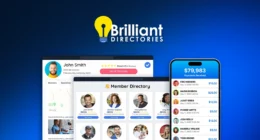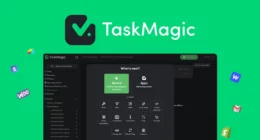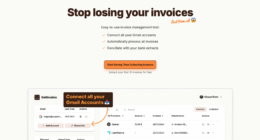Small business tax software platforms like TurboTax, H&R Block, and TaxAct offer essential features for streamlined tax management. These solutions provide automation, user-friendly interfaces, and robust reporting capabilities while ensuring compliance and security. Popular options range from free alternatives like Cash App Taxes to extensive platforms with QuickBooks integration. Key benefits include cost savings, error prevention, and reduced outsourcing needs. Understanding the specific features and pricing models helps businesses select the ideal tax planning solution.
Quick Overview
- TurboTax and H&R Block lead small business tax software options, offering comprehensive features and QuickBooks integration for streamlined operations.
- Cloud-based tax solutions enable remote access, automated compliance updates, and secure data backup for small business owners.
- Automated tax software reduces costly errors, minimizes manual work, and provides real-time reporting for informed business decisions.
- Tax planning platforms should include multi-entity management capabilities and asset segregation features to optimize business structure.
- Built-in security measures and encryption protect sensitive financial data while maintaining IRS compliance and audit trail requirements.
Understanding Small Business Tax Software Options

The complexity of tax planning demands careful consideration when selecting software tools for small businesses. Several reliable options cater to different business needs and budgets.
Popular choices include H&R Block, known for its user-friendly interface and extensive audit support, and TurboTax, which seamlessly integrates with QuickBooks while offering robust deduction-finding features. These software solutions are evaluated based on 320 data points across major tax filing programs. Budget-conscious businesses often turn to TaxAct and TaxSlayer, which provide solid functionality at lower price points. For freelancers and sole proprietors with basic needs, Cash App Taxes offers a free alternative.
Small business owners can choose from trusted tax solutions like H&R Block and TurboTax, or explore budget-friendly options including TaxAct and TaxSlayer.
Each platform offers distinct advantages:
- H&R Block: Best for audit support ($50-$109)
- TurboTax: Excellent for QuickBooks users ($89 federal + $39 state)
- TaxAct: Cost-effective with maximum refund guarantees
- TaxSlayer: Affordable starting at $24.95
- Cash App Taxes: Free option for simple returns.
Essential Features for Tax Planning Tools
Selecting tax software requires a clear understanding of which features truly matter for small business success. Modern tax planning tools combine automation, artificial intelligence, and user-friendly interfaces to streamline tax management processes. Cloud-based solutions enable seamless remote access and collaboration across teams while ensuring data is continuously backed up.
Essential features that deliver the most value include:
- Automated tax compliance with real-time rate updates and form generation, ensuring accuracy and timeliness
- AI-powered capabilities for document extraction and predictive tax planning, reducing manual work and errors
- User-friendly interfaces with natural language assistance and customizable settings for efficient navigation
- Advanced reporting tools that provide real-time insights and scenario analysis for better decision-making
These core functionalities work together to simplify tax management while maintaining compliance with current regulations. Small businesses should prioritize solutions that offer these features within a secure, scalable platform.
Maximizing ROI With Automated Tax Solutions

Modern businesses seeking substantial returns on their tax software investments benefit from strategic automation deployment. The cost-effectiveness of automated tax solutions manifests through multiple channels, from reduced labor expenses to error prevention.
Companies can achieve significant savings by minimizing manual intervention in routine tax tasks while maintaining high accuracy levels. Automated systems prevent costly penalties by ensuring timely compliance with tax regulations and deadlines. The integration with leading business platforms streamlines tax processes across multiple systems.
The scalability of these solutions allows businesses to grow without proportionally increasing their tax management resources. Additionally, automation reduces outsourcing costs by enabling internal handling of tax processes. The system’s ability to eliminate filing errors helps avoid expensive revisions and audits.
Multi-Entity Tax Planning Strategies
Five critical strategies define successful multi-entity tax planning for businesses operating through multiple legal structures. Understanding these approaches helps small businesses maximize their tax positions while maintaining proper asset protection and operational efficiency.
Key multi-entity tax planning strategies include:
- Asset segregation across separate legal entities to minimize liability exposure and protect valuable business assets
- Strategic income shifting between entities to take advantage of favorable tax rates and jurisdictions
- Implementation of tax-efficient structures like holding companies, REITs, or LLCs based on business needs
- State-level tax optimization through careful entity placement and operational management
These strategies require careful coordination and professional guidance to verify compliance while maximizing tax benefits. Regular review of multi-entity structures helps businesses adapt to changing tax laws and maintain the best possible tax positions. Utilizing modern tax planning software streamlines the process of managing complex multi-entity structures while ensuring accurate compliance across jurisdictions.
Compliance and Security Considerations

Maintaining robust adherence to compliance and safety measures represents a cornerstone of effective tax planning software implementation for small businesses. Modern tax software combines sophisticated encryption technology, automated compliance updates, and thorough security protocols to protect sensitive financial data.
Key security features include multi-layered data protection through encryption, secure cloud backups, and customizable access controls. The software helps businesses meet legal requirements by incorporating IRS guidelines, maintaining proper audit trails, and guaranteeing adherence to data retention laws. Leading solutions like Quaderno’s developer-first API enables businesses to create custom security workflows that align with their specific needs. To combat security threats, these systems typically include built-in safeguards against phishing attacks, malware, and unauthorized network access.
Small businesses benefit from automated tax calculations, real-time compliance updates, and deduction identification tools that reduce errors while maximizing potential savings. These features work together to certify both data security and regulatory compliance.
Cost Analysis and Software Selection
Careful evaluation of tax planning software costs and features remains essential for small businesses seeking to optimize their financial operations. When selecting tax planning software, businesses should weigh both immediate expenses and long-term value while comparing available options in the market. Advanced solutions offer five-year tax projections to help businesses make data-driven financial decisions.
Key factors to reflect on when evaluating tax planning software include:
- Initial licensing costs, which typically range from $129-$149 for solutions like CFS Small Business Tools
- Integration capabilities with existing accounting systems and potential customization fees
- Subscription models that provide ongoing support, updates, and training resources
- ROI potential through features like tax savings identification and scenario analysis
A thorough cost-benefit analysis helps verify that the selected software aligns with business needs while providing adequate functionality for tax planning and compliance requirements.
Frequently Asked Questions
Can Tax Planning Software Handle Cryptocurrency Transactions and Related Tax Implications?
Modern tax planning software effectively handles cryptocurrency transactions and their tax implications. These platforms integrate with major crypto exchanges to automatically import transaction data, calculate capital gains and losses, and generate IRS-compliant forms like Schedule D and Form 8949.
The software can process complex activities including DeFi transactions, staking income, and NFT trades. Advanced features include tax loss harvesting optimization and distinction between taxable and non-taxable events.
How Long Should Businesses Retain Digital Tax Records Generated by Planning Software?
Just as squirrels store nuts for seasons ahead, businesses should strategically retain their digital tax records. The standard retention period is seven years for most digital tax records, which covers the IRS’s basic three-year requirement while providing extra protection.
However, specific situations require longer retention: six years for underreported income, four years for employment taxes, and indefinite retention for unfiled or fraudulent returns. Secure, encrypted digital storage makes this extended retention practical and manageable.
What Happens if the Software Crashes During Electronic Filing?
If software crashes during electronic filing, businesses should immediately take screenshots of any error messages and save incomplete filing data. The IRS typically provides guidance for system failures, including potential deadline extensions or penalty relief.
Businesses should contact their software provider’s technical support and maintain proof of attempted filing. As a backup measure, they can switch to alternative filing methods like paper forms to guarantee timely submission while the technical issues are resolved.
Are Software-Generated Tax Documents Legally Valid in International Business Transactions?
Software-generated tax documents are legally valid in international business transactions when they meet specific requirements. Most countries recognize electronic signatures and digital documents through laws like the ESIGN Act (U.S.) and eIDAS (EU).
Key requirements include tamper-proof storage, verifiable digital signatures, and complete audit trails. However, validity depends on compliance with local regulations, proper encryption methods, and adherence to international standards for electronic documentation.
Cross-border recognition is guaranteed through frameworks like UNCITRAL.
Can Multiple Users Access the Tax Planning Software Simultaneously?
Like ancient Roman forums where multiple merchants could trade simultaneously, modern tax planning software supports concurrent access for multiple users.
Most professional tax software platforms offer multi-user versions that enable team members to work on tax documents at the same time. Through integrated security features and real-time synchronization, users can collaborate efficiently while maintaining data integrity. Administrative controls guarantee proper access management and track user activities within the system.
Conclusion
Just as a skilled gardener selects the right tools to nurture different plants, small business owners must choose tax planning software that fits their unique needs. With solutions ranging from basic bookkeeping to thorough tax strategy platforms, the key is selecting software that grows alongside your business. Research shows that businesses using automated tax solutions save an average of 15 hours per month on tax-related tasks, making the investment well worth the initial setup time.








